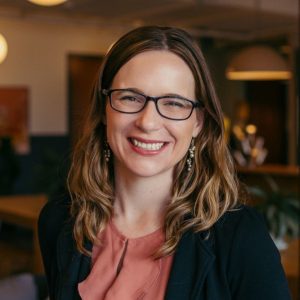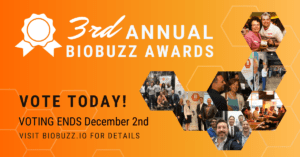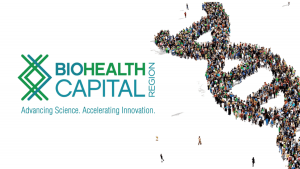
(Image generated by craiyon)
6 Things I’ve Learned as I’ve Navigated a Non-Academic Career Path Post-PhD
This fall marks 5 years since I finished my PhD in Cell and Molecular Biology at the University of Maryland and started my first non-academic job as a medical writer.
As I was nearing the finish line of my degree, I knew that I wanted pursue a career in science communication, but needless to say the field is…broad. As I cleaned out my lab bench and set down my pipettes for the last time, I didn’t quite know where the next few years would take me.
I’ve learned a lot since then. And given that more and more scientists are opting for careers beyond academia, I wanted to share a bit about what I’ve learned so far in hopes that it will help others on their non-academic journeys.
To set the stage here – I did not do a postdoc after my PhD. I started immediately in an entry-level regulatory medical writing job at a contract research organization. I then transitioned into a scientific analyst role at a scientific PR agency (Verge Scientific Communications) for three years before starting as Managing Editor at BioBuzz.
Note that these insights are from my own experiences blundering the post-PhD world – YMMV.
1) I am still a scientist, and with that bring invaluable skills to the table
I’ve definitely had my fair share of identity crises since stepping away from the lab. It doesn’t help that there are often…let’s just say lively discussions in communities such as Science Twitter on the topic, with some folks still adamant that those in non-ac jobs couldn’t make the cut as a “real” scientist.
My two cents – while I’m not working at the bench I still am, by all means, a scientist. I’m able to critically think about scientific topics and comprehend peer-reviewed literature in different fields. I’m able to talk shop with other scientists about their research, techniques, and data. Further, I have the unique skill of not only being able to understand complex topics, but frame them for a variety of different audiences in a way that is understandable, yet still scientifically accurate.
A handful of folks over the years have also asked if I needed the PhD to get into my current career path. The honest answer is “no” – you don’t need a PhD to get into most science communication careers, whether it be public relations, media, outreach, or policy.
But it gives me a unique skill set that sets me apart from others in my field, and more and more companies are realizing the immense value that scientists bring to the table in different roles.
2) Publications have less weight than you might think in non-academic jobs – skillsets can take you farther
I finished my PhD without a first author paper.
There’s a bit of stigma associated with graduating without the holy grail first author publication. And there’s also a fear among jobseekers that this is a scarlet letter on their resume that will keep them from ever landing a good job.
I can tell you that none of the three jobs that I’ve had ever asked why I didn’t have a first-author, nor have they asked about any of the publications I was a co-author on. When interviewing for my first medical writing job out of grad school, my interviewers were much more interested in my general scientific expertise and my experiences outside of the lab – my time volunteering with Women In Bio, my internship with the Drug Information Association, and the courses I had taken through the BIOTrain program at Montgomery College.
If you look at my most current resume, my publication list has gone from taking up a few lines to now just being, “Co-authored [X] publications, including [X] review articles” because I’ve acquired so many additional skills, including project and portfolio management, creating strategies for company launches and media outreach, and managing junior team members.
Now I can’t say that publications don’t hold weight for every non-academic career, but many companies are more interested in your skill set and the techniques you’ve mastered overall. Let’s face it – nowadays, publishing your research amounts to a lot of luck. Experiments need to go in the right direction, you need to have good reviewers who don’t nitpick, and you are held hostage by the time it takes to review. I’ve known some who have been in publication purgatory for months, as editors are struggling to even find people willing to review.
RELATED: Women in Bio Prepares Researchers for Career Transitions to Industry
Papers are a nice asset to be able to point to during an interview to show the skills you have, but a Nature or Cell paper is not a golden ticket to landing a non-academic job. Having had numerous conversations with the recruiters on our Workforce Genetics team, I’ve learned that it’s often more important to be able to talk about your skills as a story. How did you set up and optimize a big experiment you were working on? How did you troubleshoot when things went awry?
3) Networking is still important even after you land your first job
You’ve heard us talk about the importance of networking as a graduate student or postdoc, but that importance doesn’t go away once you sign your first offer letter.
In fact, both positions I had after my first medical writing job, including my current role at BioBuzz, came through networking.
I met BioBuzz/Workforce Genetics CEO Chris Frew through a connection that I made with Women In Bio. I did the occasional freelancing, attended BioBuzz networking events, and kept in touch with Chris here and there over the years.
My boss at Verge Scientific Communications had connected with me on LinkedIn because she saw where I had shared some of the freelancing work that I had done for BioBuzz. I set up time with her for an informational interview because I was generally interested in learning more about science communication agencies. A day after, she sent me a job offer. Fast forward a few years later, and Chris reached out to me with the Managing Editor role. The rest is history.
While you might not need to network as heavily once you land a job, you still never know what doors networking will open. It might open a door in a few days, a few months, or a few years.
4) You aren’t going to retire from your first job – don’t be afraid to explore!
When I talk to PhD students and postdocs for informational interviews, often I’ve sensed anxiety around what their first job will be post-PhD. This is because there’s this outdated notion that your first job will be the field you’ll be locked in to forever.
I initially had this fear myself going into medical writing. What if I didn’t like it? Was I going to be stuck writing INDs and clinical trial protocols until the end of time?
The beautiful thing about the job market is that, unlike in graduate school labs, it’s much easier to switch jobs if you’re not happy. And the switch might go in all kinds of directions. You could make a lateral change where you keep the same role but switch companies, or you could ping-pong around and try out different types of jobs to see what fulfills you the most.
My advice to folks is to try to stick it out in a job for a year – by then you should have shaken a lot of the new job jitters and have a good sense of whether you truly enjoy it or not. For me, I realized about ~9 months in that while I was learning a lot about drug regulations and clinical trials management, I really wanted to get back to the more creative side of communications and made the pivot.
All that said, if the job is toxic and you’re miserable, don’t be afraid to jump ship sooner. Your mental health and wellbeing matter.
5) Imposter syndrome unfortunately doesn’t go away
But you learn ways to squash it.
Much like a beautiful butterfly emerges from a cocoon, I was sure that once I pressed “Submit” to file my dissertation with the college I would never feel like an imposter again.
Boy was I wrong. In fact, I was stuck in that weird in-between goo phase for a while. And even now, I feel a bit more like that caterpillar at the end of A Bugs Life – I’ve definitely become more confident, but I’m still a work in progress.
The first few weeks of my medical writing job I was getting bombarded with clinical trial and oncology acronyms, trying to figure out which task-code I was supposed to bill all the time I spent Googling to. As someone who came from the infectious disease/microbiology field, this was a whole new world to me. Those feelings of inadequacy that I had when I first started grad school quickly resurfaced, except now I was an expert at “faking-it-till-I-make-it”. I gritted my teeth, trusted the process, and continued poking my teammates with questions. Within about three months things magically clicked, and I stopped having that looming fear that I was going to get fired.
And then I started my PR job, where I had no clue what a Series-whatever round or “going public” meant. I was on a poor graduate student stipend for five years, after all – I was happy enough to be able to afford a nice meal at the local Thai place, much less think about stock market trends. Imposter syndrome rose its head once more, but again I trusted the process and asked questions, and things once again clicked for me.
By the time I started my job at BioBuzz last November, I was a seasoned professional when it came to smacking down the imposter syndrome demons.
The three keys for me have been: 1) finding communities of like-minded, non-academic scientists that I can relate to; 2) becoming shameless when it comes to asking questions, especially if that question is impeding my progress on a project and, last but not least; 3) therapy and antidepressants.
6) It’s okay to “lean out” for a bit if you need to
I used to be much more active in the community, attending every networking event I could and seeking out workshops and webinars to help enhance my skills. While I slowed down a bit after setting into my career, I still had an itch for knowledge and community involvement that needed to be scratched.
Then I got pregnant.
Between morning sickness and having the energy of a slug, I stopped going to events for a while. I figured that after having the baby I, like one of my wilted, half-dead desk plants, would suddenly perk back up after being watered and be right back at it.
And then COVID hit.
And also the realization that babies are a lot of work.
Between working full time, taking care of a now-toddler, and having a husband who works night shift, I don’t have as much energy to devote to things outside of work right now. And that’s okay.
At first, I felt immensely guilty for not devoting more of my free time to self improvement. After talking to many other working moms, though, I realized that taking a step back is actually normal, especially given the difficulties of the pandemic. Instead of fighting it, I’m learning to accept that this is a season of life. The season will pass, and eventually I’ll be able to do more.
An important note too is that you don’t need to start a family to “lean out” for a bit. Let’s be real here – even just processing all the news that’s been happening over the past few months is justified.
- About the Author
- Latest Posts
Sarah Ellinwood is BioBuzz’s Managing Editor. A scientist by training and a science communicator at heart, Sarah specializes in making complex concepts understandable, engaging, and exciting. She received her Ph.D. in molecular and cellular biology with a focus in infectious disease immunology from the University of Maryland and is passionate about all things related to scicomm, peer mentorship, and women in STEM.





